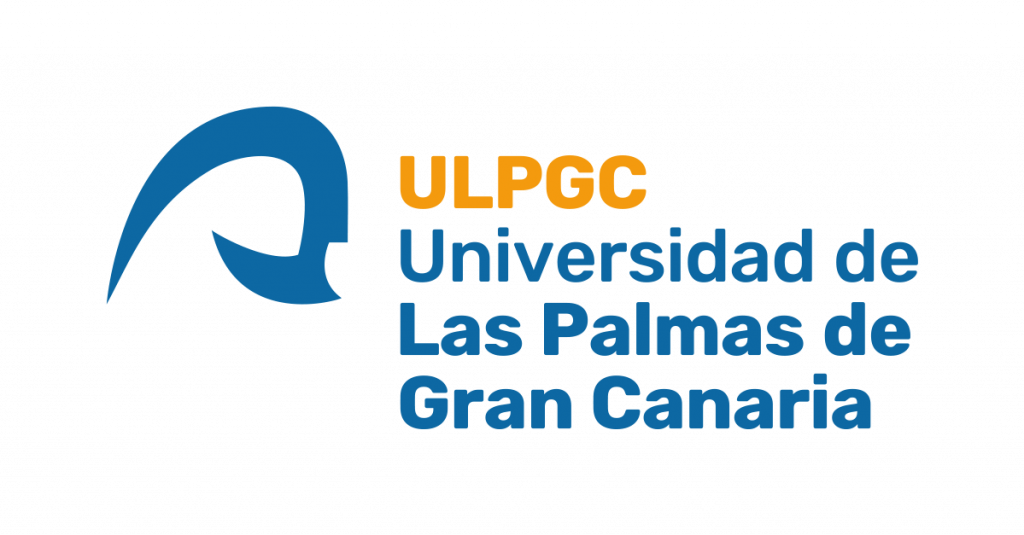Members
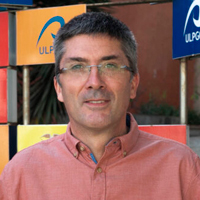
Richard Clouet
Richard Clouet (PhD) is Associate Professor at the Department of Modern Languages, Translation and Interpreting of the University of Las Palmas de Gran Canaria, where he has been teaching language, translation and intercultural communication at the Faculty of Translation and Interpreting since 2000.
He is a member of the research group FLETATIS (Foreign Language Education Through Applied Technologies and Intercultural Sensitivity). His research fields include EFL acquisition in Translation studies, EAP, ELF, intercultural communication, and the process of internationalization of Higher Education Institutions. His most recent publications include “The intercultural dimension of English as an Academic Lingua Franca (EALF) in scientific publications” (Revista de Lenguas para Fines Específicos, 2017), “Internationalising Spanish Universities to Increase Intercultural Understanding: the Challenge of an Island University in Europe” (Hungarian Journal of Applied Linguistics, 2017), “Distancia entre lenguas/culturas y transferencia lingüística/cultural: sus efectos en el proceso de adquisición del inglés como lengua extranjera” (Didáctica, Lengua y Literatura, 2018) and “Influencia de la cultura y de la identidad en el aprendizaje de una lengua extranjera: aplicación del modelo de las seis dimensiones de Hofstede (2010) para analizar el proceso de aprendizaje de ELE por parte de estudiantes surcoreanos” (Onomázein, 2020).
https://orcid.org/0000-0003-0727-1260
Email: richard.clouet@ulpgc.es
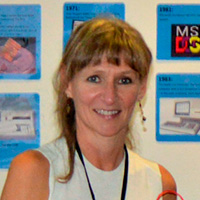
Susan Cranfield McKay
Susan Cranfield McKay has been teaching English Language and Introduction to Specialised Translation at the University of Las Palmas de Gran Canaria for more than 25 years. Translating is one of her passions, together with the challenge posed by incorporating transversal, global and sustainable competencies into her teaching in order to foment a culture of respect, peace, tolerance, empathy and solidarity, values she considers to be essential in dealing with the complex nature of our 21 st century world. Her research interests are centred around linking theoretical principles for language learning to the sub-competences that make up global competence. She is interested in action projects as a way to move beyond awareness of global topics that may be raised in a classroom environment, towards gaining personal experience of important issues and how, as individuals, we can bring about positive change within our sphere of influence. The impact that this can have on students’ learning is an essential factor both in translator education and in a commitment to the promotion of lifelong learning as set out in the UN 2030 Agenda.

Leticia Fidalgo González
Leticia Fidalgo González (PhD) is Associate Professor (PCD) at the School of Translation and Interpreting at the University of Las Palmas de Gran Canaria since 2007. She has been teaching Scientific-Technical Translation, Conference Interpreting in Bachelors Degree, and Community Interpreting in Master’s Degree.
She holds a PhD on literary translation in hybrid identities and contexts (2006, ULPGC), and a Master`s Degree in Medical and Health Translation (2018, University Jaume I of Castelló). She has been a visiting lecturer at UABJO (Mexico). She has specialized in how translation and interpreting work as identity factors and forms of intercultural communication. Her research interests focus now on community interpreting in intercultural settings, as well as in the interpreter’s and the public service professionals’ intercultural intelligence.
She has also worked as a freelance conference interpreter, and a scientific and literary translator.

Soraya García-Sánchez
Soraya García-Sánchez (PhD) is Associate Professor (TU) at the Department of Modern Languages, Translation and Interpreting (English) at the Universidad de Las Palmas de Gran Canaria (ULPGC, Spain), where she has been teaching language, culture and literature courses both online and on a face-to-face basis. She published her first novel, Voces en papel in 2011 (Voices on paper).
García-Sánchez is Head of the FLETATIS, and her research interests are focused on applications of ICT tools to learning (CALL/MALL), motivation, cultural and language input and u-learning for EFL/ESP/EAP university students. She has also created multimedia material for Open Access Platforms and published various self-study textbooks for EFL/ESP university students: Performing your Communicative Competence in English (with C. Luján-García), English Applied to Social Work, and English for Historians. Some of her more recent publications are “English Public Speaking: Presentations for English for Specific Purposes” (The International Journal of Literacies 2019); “Collaborative Ubiquitous Learning: A 21st-Century Approach for (In)Formal Scenarios” (Informal Learning: Perspectives, Challenges and Opportunities 2017 ); “A Revision of Activity Theory to Foster Communicative Twenty-first-century Skills”, with N. C. Burbules (The International Journal of Learning: Annual Review 2017) and “Empowering pre-service teachers to produce ubiquitous flipped classes”, with J. M. Santos-Espino (PROFILE Issues in Teachers’ Professional Development 2017).
http://orcid.org/0000-0003-1095-9410
Email: soraya.garcia@ulpgc.es
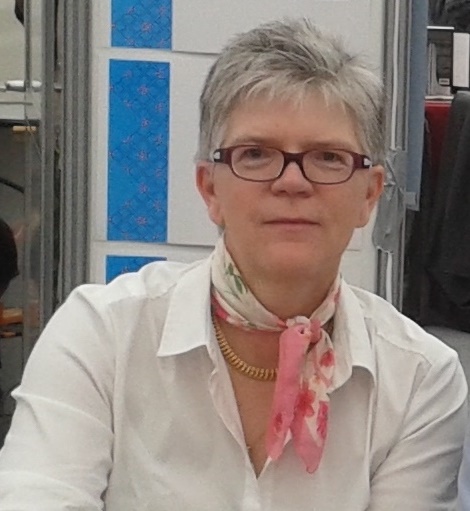
Florence Lojacono
Florence Lojacono has taught French in France, West Indies, French Polynesia, USA, Italy and Switzerland. Currently, she is a full-time Associate Professor in French Studies, in the Department of Modern Languages, Translation and Interpreting at the University of Las Palmas de Gran Canaria (ULPGC), Spain. She designed different online teaching courses format for French and Italian at the Empire State College (NY, USA). At the ULPGC, she served 5 years as Vice-Dean for International Affairs at the Faculty of Translation and Interpreting and, most recently, she was Director of Internationalisation and Languages.
Her research interests include islands and literature, and the philosophy of education. She coined the term «ontological robinsonnade» in her 2014 book, Le Roman de l’île et la robinsonnade ontologique (Petra publishers). Her literary work focusses on authors such as J.G. Ballard (Concrete Island), René Barjavel (Le Grand Secret), Boileau-Barcejac (L’Île), Albert Camus, Marc Chadourne (Vasco), Julio Cortázar (La Isla a Mediodía), Romain Gary (La Tête Coupable), Michel Houellebecq (La Possibilité d’une Île), Aldous Huxley (Island), J.M.G. Le Clézio (Le Chercheur d’or, Voyage à Rodrigues, La Quarantaine), Miquel Ángel Riera (Illa Flaubert), Georges Simenon (Long cours, Touriste de bananes) and Manuel Vázquez Montalbán (Los Mares del Sur). In philosophy, she is influenced by thinkers like Alain, Gaston Bachelard, Julien Benda, Célestin Freinet, Georges Gusdorf, Eugène Ionesco, Ivan Illich, Thomas Kuhn, Edgar Morin, Emmanuel Mounier, Parker Palmer, Charles Péguy, Olivier Reboul, Jacqueline de Romilly and Simone Weil. Her educational philosophy examines the shift from institutional constructivism to connectivism (Bertalanffy, Boghossian, Michéa, Milner, Morin, Popper), and the role of AI in education. Lojacono is a strong supporter of free and mobile learning resources combined with meaningful tech-free F2F class time (Bowen).

Helena Luezas Hernández
Helena Luezas Hernández has been working as a freelance translator and interpreter over 20 years, covering areas and events that go from technical fields, software localisation, boards of administration, banking and capital control, EU Overseas Countries and Territories, political and economic meetings, and events with international personalities, among others. Since 2014, she has been coordinating the team of interpreters for the Maspalomas Costa Meloneras International Tourism Forum (organised by the ULPGC and sponsored by the UNWTO), with French and English booths.
As a member of the research group FLETATIS (Foreign Language Education Through Applied Technologies and Intercultural Sensitivity), she is currently writing her PhD on the management of cultural dimensions in interpreting. Her research to date includes the presentation of a poster in the 5 th International Virtual Conference on Education, Innovation and ICTs 2020 (Madrid, Spain), explaining how a practical subject concerning professional practice has been adapted from a physical classroom with a supporting virtual campus to a completely virtual asynchronous learning format, due to the 2019 pandemic.
Email: helena.luezas@ulpgc.es

Christina Giannikas
Christina Nicole Giannikas holds a PhD in the field of Applied Linguistics and TESOL. She is a Special Scientist for the CUT Language Centre, a Researcher and Lab Partner for the Department of Rehabilitation, a pre-service teacher trainer for the UCY Department of Education, an Academic Partner for QLS (The Quality of Language Services Association), a freelance ELT Consultant, an online tutor, researcher, materials writer and editor. Dr. Giannikas has taught English to students of all age groups in Greece, the UK and Cyprus and has taught courses in Applied Linguistics to University students at a BA and MA level at London Metropolitan University, the University of Cyprus and Cyprus University of Technology. Dr. Giannikas’ research interests are based in the field of Applied Linguistics, specialising in the areas of early language learning, Computer Assisted Language Learning (CALL), policies in language education, assessment, and professional development in English Language Teaching (ELT). Finally, Dr. Giannikas is on the Academic committee (secondary school English) of the Ministry of Education and Culture of Cyprus. She is on the Editorial board of TESOL Journal, and the Chair of the EuroCALL Teacher Education Special Interest Group.
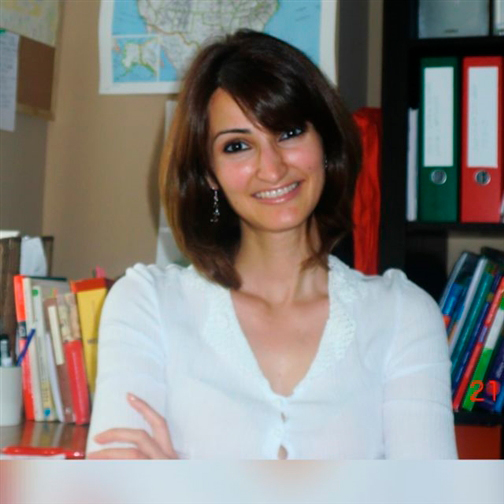
Bianca Manuela Sandu
Bianca Manuela Sandu ((PhD) has been teaching English as a foreign language, English for specific purposes and English culture courses since 2017 at the Department of Modern Languages, Translation and Interpreting (English) at the University of Las Palmas de Gran Canaria (ULPGC). She has also taught about language contact and bilingualism (English and Spanish) in some language communities from Central and North America at the Department of Spanish Philology. Sandu has been teaching English and Spanish as foreign languages in a non-academic context for more than ten years.
Sandu has been carrying out research on lexical availability in Spanish and English as foreign languages for more than ten years and she now researches and writes about the L2 Motivational Self System and its impact on university learners’ lexical availability and other objective and subjective variables. Other research interests include a quantitative and qualitative analysis of the impact of variables such as ‘cultural input’ or ‘having visited a target-language country’ on students’ motivation and lexical availability, which could reveal a new shift in focus as English is the newest lingua franca and students identify with an international community, which motivates and allows them to travel virtually to any English-speaking place, and hence to expand their vocabulary. She is also exploring changes in university students’ motivation and outcomes when they are provided with a range of language and motivational strategies, aiming at making them purposeful, goal-directed actors.
